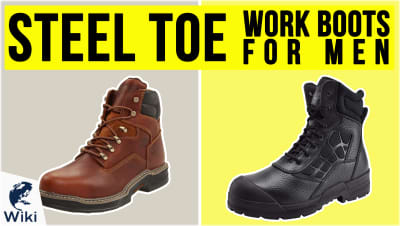9 Organizations Helping Women And Girls Worldwide
Substantial progress has been made toward gender parity in many parts of the world, yet social, political, and economic oppression remains the reality for a vast number of girls and women. The organizations included here are among those working diligently to solve this inequity, offering a diversity of programs, services, and systems-based initiatives to create a more just world order. This video was made with Ezvid Wikimaker.
9 Groups That Support Girls and Women
| Organization | Mission |
|---|---|
| The ERA Coalition | Work with partner organizations to provide a strong forum for all voices, inclusive and multi-generational, and build a groundswell moving towards equality |
| Paradigm for Parity | Achieve a new norm in the corporate world, in which women and men have equal power, status, and opportunity |
| Miller Center for Social Entrepreneurship | Accelerate entrepreneurship to end global poverty and protect the planet |
| The GBV Prevention Network | Prevent violence against women throughout Africa |
| Nest | Build a new handworker economy to increase global workforce inclusivity, improve women’s wellbeing beyond factories, and preserve important cultural traditions around the world |
| DIY Girls | Increase girls’ interest and success in technology, engineering, and making through innovative educational experiences and mentor relationships |
| The UN Women for Peace Association | Advance the goals of academic and charitable organizations that provide opportunities for women to partake in the global peace building process through social, cultural, educational, and women empowerment programs |
| Women in Biz Network | Help business owners and professionals connect, share, and grow in their business lives |
| The Karadah Project | Build sustainable and long-term solutions in partnership with the people of Iraq and Afghanistan |
The Mission of Paradigm for Parity
Percentage of Women in the Workforce
The percentage of men & women in the civilian labor force over time, according to the U.S. Department of Labor
| Year | Women | Men |
|---|---|---|
| 1950 | 29.6% | 70.4% |
| 1960 | 33.4% | 66.6% |
| 1970 | 38.1% | 61.9% |
| 1980 | 42.5% | 57.5% |
| 1990 | 45.2% | 54.8% |
| 2000 | 46.5% | 53.5% |
| 2010 | 46.7% | 53.3% |
What the GBV Prevention Network Does
In Depth
Though our society has come a long way in affording opportunities and autonomy to women and girls, their career choices and life chances still suffer in comparison to those of men. For that reason, there are many organizations designed to help women and girls advance their interests and pursue a life of dignity. This list, presented in no particular order, highlights some of them.
#1 is The E.R.A. Coalition, a coalition that fights for the passage of the Equal Rights Amendment to the U.S. Constitution and promotes campaigns for related causes. Supporters include organizations like Equality Now, Glaad, and the League of Women Voters, as well as celebrities such as India Arie, Jimmy Carter, Catharine MacKinnon, and David Dinkins.
The coalition works among different layers of government and society. At the local and state level, it brings together advocates on bi-weekly calls. In Washington D.C., it works to build support in the Senate and House. Its Legal Task Force numbers some of the country's leading constitutional lawyers. Show your support by signing the pledge to back the Equal Rights Amendment.
Its Legal Task Force numbers some of the country's leading constitutional lawyers.
At #2, Paradigm for Parity is made up of a coalition of business leaders dedicated to addressing the corporate leadership gender gap. Involving CEOs, senior executives, founders, board members, and business academics, the group is committed to a world in which it would be unremarkable for women and men to have equal power, status, and opportunity.
The group's five-point action plan identifies the goals of eliminating unconscious bias, significantly increasing the number of women in senior operating roles, setting measurable goals on the path to gender parity, basing career progress on results and performance, and establishing mentorship opportunities for women of potential.
On our list at #3, it's Miller Center for Social Entrepreneurship. Founded in 1997 and based at Santa Clara University in the heart of Silicon Valley, the organization is rooted in the faith that a capitalist's extraction of value can serve the social good. In addition to projects for climate resilience, the center focuses on women's economic empowerment.
Founded in 1997 and based at Santa Clara University in the heart of Silicon Valley, the organization is rooted in the faith that a capitalist's extraction of value can serve the social good.
Women make up half of the world's population yet represent 70 percent of the world's poor. Miller Center claims that giving women tools to start businesses sets a direct path toward gender equality, poverty eradication, and inclusive economic growth. Its efforts toward this end are based in a framework of eight building blocks. A mentorship program partners young Social Benefit Fellows with program alumni who support their work.
For #4, we've got The GBV Prevention Network, which brings together activists and organizations working to prevent violence against women. Operating in 18 different countries in East and Southern Africa and the Horn, the network numbers 500 members, including those from both rural and urban areas, community-based organizations, academic institutions, and other groups.
The Network sets three main objectives: enhancing organizations' rights-based analysis of violence against women; fostering increased solidarity between and among participants; and increasing activism and joint actions among members. The group publishes a variety of tools and resources to create and strengthen a shared understanding of the problem and its roots.
The group publishes a variety of tools and resources to create and strengthen a shared understanding of the problem and its roots.
Coming in at #5, Nest is a nonprofit designed to build a new handworker economy to increase global workforce inclusivity, improve women's wellbeing beyond factories, and preserve important cultural traditions around the world. It was founded by Rebecca Van Bergen, an American woman with a Masters Degree in Social Work. Inspired by her grandmother's quilting and sewing, she saw the promotion of craft as a means to address the world's gender and income imbalances.
Undertaken in partnership with public and private sector collaborators, Nest offers a variety of programs that seek to unlock the social potential of handwork. The group's Ethical Handcraft initiative works to ensure industry-wide transparency and compliance for production taking place outside factories. The Nest Guild connects artisan businesses across countries. Fellowships, accelerators, incubators, platforms, and summits offer tools for those working or looking to get started in craft industries.
#6: D.I.Y. Girls has the mission of increasing girls' interest and success in technology, engineering, and making through innovative educational experiences and mentor relationships. It was founded in 2012 in Los Angeles by Luz Rivas, an electrical engineer and teacher who has gone on to become a California State Assemblymember for the 39th District.
It was founded in 2012 in Los Angeles by Luz Rivas, an electrical engineer and teacher who has gone on to become a California State Assemblymember for the 39th District.
Working with partner schools throughout the San Fernando Valley, D.I.Y. Girls uses a three-pronged approach that integrates engagement, capacity building, and continuity to ensure girls' success. The group's after-school and summer programs provide hands-on science, technology, engineering, art, and math experiences. Students learn technical skills which they then apply to their own creative projects and inventions.
The #7 entry is The U.N. Women for Peace Association. It aims to advance the goals of academic and charitable organizations that provide opportunities for women to partake in the global peace building process through social, cultural, educational, and empowerment programs. The organization was established in 2008, under the patronage of H.E. Mrs. Ban Soon-taek, the wife of UN Secretary-General Ban Ki-moon.
Committed to the prevention of violence against women and girls, to the provision of services to those affected by it, and to strengthening the implementation of laws and policies against such acts, much of the group's energy is directed toward raising funds for the United Nations Trust Fund to End Violence Against Women. Every spring, it hosts a fundraising march.
Every spring, it hosts a fundraising march.
In the #8 spot, Women in Biz Network strives to help business owners and professionals to connect, share, and grow in their business lives. The organization focuses on helping women to be happier, healthier and less isolated while increasing their success through mentorship, advocacy, skill-building events, and training. After more than ten years in operation, the network numbers more than 35,000 people.
It offers coaching programs for career transitions and job searches. There are also a number of mentoring opportunities, which promise practical leadership and results-oriented action plans to help participants make better decisions. The network's large stable of mentors hail from a variety of business sectors, and there are consultations available from the group's founder and CEO Leigh Mitchell.
Finally, closing things out at #9, The Karadah Project International manages sustainable projects in Iraq and Afghanistan, many of them targeted at women and girls. Based in Council Bluffs, Iowa, it grew out of a Sister Cities International Friendship Partnership between that town and the eponymous district in Baghdad, Iraq.
Based in Council Bluffs, Iowa, it grew out of a Sister Cities International Friendship Partnership between that town and the eponymous district in Baghdad, Iraq.
Among the projects supported by the group is Goats for Afghanistan, a partnership with the Shindad Women Social Foundation that brings goats to Afghan families. Working alongside the same organization, it also worked to build private toilet facilities to a school in rural Afghanistan, in response to a U.N. study showing that when a school had a bathroom, the attendance of girls increased by eleven percent.



















